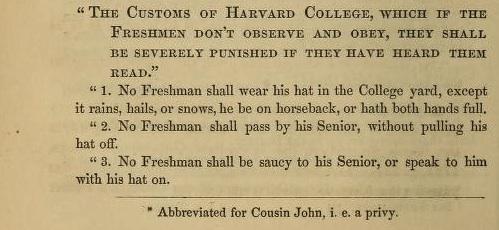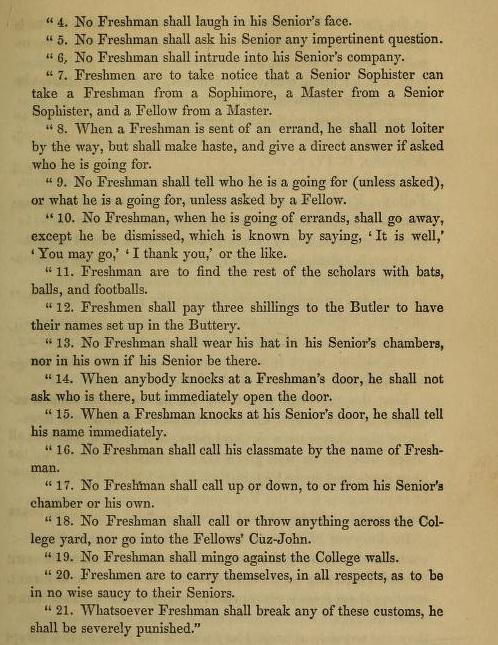The Vault is Slate’s history blog. Like us on Facebook, follow us on Twitter @slatevault, and find us on Tumblr. Find out more about what this space is all about here.
This list, from the 1856 book A Collection of College Words and Customs by B.H. Hall, reports the customs governing what we would now call “hazing” at Harvard University in 1741. Hall includes three similar versions of this list in his book under the entry “Freshman Servitude.” (I wrote about another list from Hall’s book—a mid-18th-century summary of fineable student offenses—earlier this year on The Vault.)
While we’re used to thinking of hazing as something that happens within student organizations (sports teams or fraternities), Hall notes that the leadership of the college endorsed these customs. They were “read out” in official settings and considered to be the law of the school.
The list mingles laws requiring errand-running and enforcing a total lack of freshman privacy with administrative requirements (“Freshmen shall pay three shillings to the Butler to have their names set up in the Buttery,” or student snack bar). Some of the rules would also be of advantage to the older scholars known as Fellows (“No Freshman shall call or throw anything across the College yard, nor go into the Fellows’ Cuz-John,” or privy).
Writing in 1856, Hall already thought of the customs as outdated:
The custom … appears at the present day strange and almost unaccountable. That our forefathers had reasons which they deemed sufficient, not only, for allowing, but sanctioning this subjection, we cannot doubt; but what these were, we are not able to know from any accounts which have come down to us from the past.
In a history of hazing (PDF,) Ruth Sterner, a student-affairs professional at Oregon State University, writes that some senior students were expelled from Harvard in its early years for acts of excessive subjugation. However, she adds, readmission after repentance—a religious act that touched the hearts of the clergymen in leadership—was common.

Internet Archive.

Internet Archive.